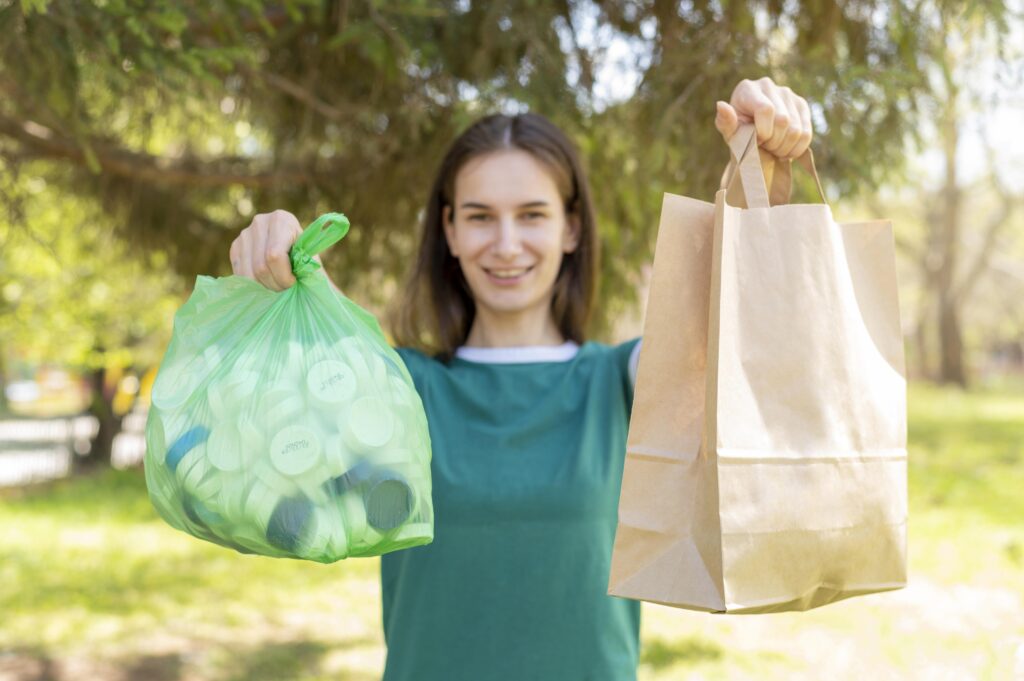
With increasing awareness of the environmental damage caused by plastic pollution, people are finally making the switch to sustainable alternatives—and one of the easiest ways to start is by swapping out plastic bags for eco friendly carry bags. But with so many options out there—from reusable totes to compostable carry bags and biodegradable carry bags—how do you know which one is right for you?
This guide will walk you through everything you need to know about choosing the perfect carry eco bags for shopping, storage, and daily errands. Whether you’re shopping at a farmer’s market, running errands, or packing lunch for work, there’s a smart, sustainable solution waiting for you.
Why Eco Friendly Carry Bags Matter
Plastic bags have been a part of our daily lives for decades, but their environmental cost is staggering. They don’t degrade easily, contribute to landfill overflow, harm marine life, and often end up as litter on our streets and beaches.
Eco friendly carry bags, on the other hand, are made to last—or to break down safely when disposed of. They are either reusable or designed to degrade naturally without leaving behind toxic waste. Making this small switch can have a huge cumulative effect on the environment if more people get on board.
Types of Eco-Friendly Bags to Consider
When choosing sustainable alternatives, it’s important to understand the different types available:
Reusable Cloth or Canvas Bags
These are the classic tote-style bags made from materials like cotton, jute, or hemp. They’re strong, washable, and perfect for repeated use.
- Best for: Grocery shopping, everyday errands, and long-term use.
- Pros: Durable, machine-washable, large capacity.
- Cons: Heavier to carry, requires regular cleaning.
Biodegradable Carry Bags
These are designed to break down naturally in the environment, usually within a few months. They’re often made from plant-based materials like cornstarch or cassava.
- Best for: One-time use where reusables aren’t practical.
- Pros: Breaks down faster than plastic, non-toxic.
- Cons: May still require specific conditions to decompose completely.
Compostable Carry Bags
Often mistaken for biodegradable bags, compostable carry bags go a step further—they turn into nutrient-rich compost without leaving harmful residues. These meet stricter certification standards like ASTM D6400 or EN 13432.
- Best for: Organic waste disposal, food packaging, small errands.
- Pros: Completely breaks down in compost environments, safe for plants and soil.
- Cons: Not always suitable for heavy items, may require composting facility.
Paper Bags
Though not new, paper bags are still a more eco-friendly option than plastic—especially if sourced from recycled paper.
- Best for: Takeout, lightweight shopping, and quick errands.
- Pros: Recyclable and compostable.
- Cons: Tears easily, not water-resistant.
How to Choose the Right Bag for You
Selecting the best carry eco bags for your needs depends on a few key factors:
Purpose & Frequency of Use
- Daily errands? Go for reusable canvas or cloth bags.
- Packing food waste or wet items? Compostable bags are ideal.
- Need something quick and disposable? Biodegradable bags work well.
Strength and Durability
Make sure your bag can handle what you carry most. If you’re shopping for groceries or bulky items, opt for a sturdier material like jute or heavy-duty biodegradable plastics.
Eco-Certifications
Look for symbols or certifications that verify eco-friendliness, such as:
- BPI Certified
- TUV Austria (OK Compost)
- ASTM D6400
- EN 13432
These ensure your biodegradable carry bags or compostable ones meet stringent environmental standards.
Ease of Storage and Portability
Foldable cloth bags are great for keeping in your car, purse, or backpack. If you want something compact, biodegradable bags often come in roll formats, making them easy to stash anywhere.
Top Benefits of Switching to Eco-Friendly Bags
- Reduces Plastic Waste: Every eco bag you use replaces dozens, if not hundreds, of plastic ones annually.
- Lower Carbon Footprint: Plant-based and compostable options require less energy to produce and break down.
- Healthier Living: No exposure to harmful microplastics or toxins.
- Better Aesthetics: Many eco bags are stylish, customizable, and perfect for personal or promotional use.
- Cost-Effective in the Long Run: Reusables save money over time, especially when stores charge for single-use bags.
Top Eco Friendly Carry Bag Brands to Check Out
- BagPodz – Reusable, lightweight, and water-resistant
- ChicoBag – Foldable bags with built-in pouches
- UNNI – Certified compostable bags made from plant starch
- BioBag – Offers both biodegradable and compostable options
- EcoRight – Stylish cotton and canvas tote bags
Each of these brands provides options that align with various needs—whether it’s daily errands or eco-conscious gift wrapping.
How to Take Care of Your Eco Bags
If you’re using reusable options:
- Wash cloth and canvas bags regularly to prevent mold or odor.
- Dry bags thoroughly before storing to avoid bacteria growth.
- Check for wear and tear—some compostable and biodegradable bags aren’t designed for repeated use.
Final Thoughts
Choosing the right eco friendly carry bags is a simple but impactful step toward a greener lifestyle. Whether you go with reusable cloth bags, biodegradable carry bags, or compostable carry bags, every little decision adds up. These bags don’t just help reduce plastic waste—they represent a lifestyle shift toward sustainability.
Next time you shop, skip the plastic and grab your eco bag. Your planet—and your future self—will thank you.






